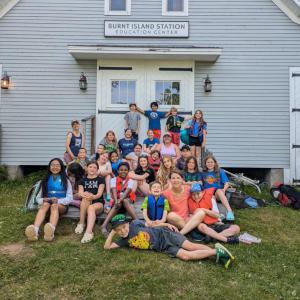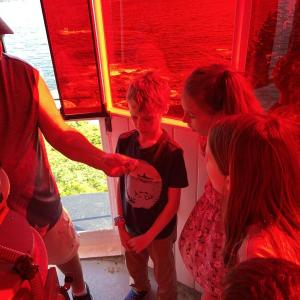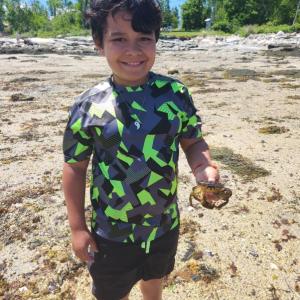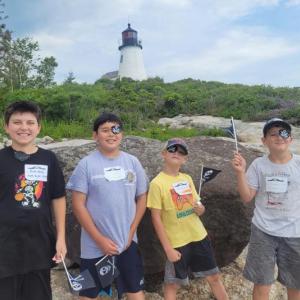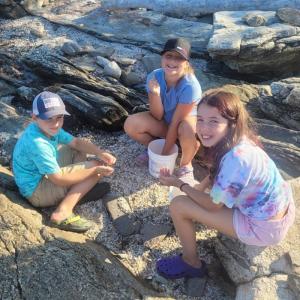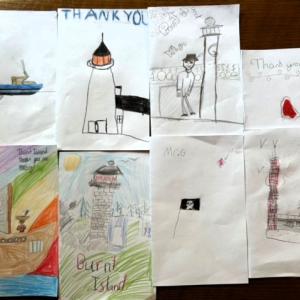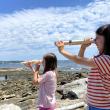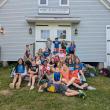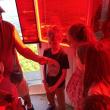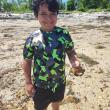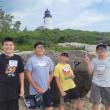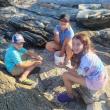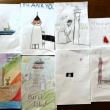Summer pirate camp makes most of treasured island
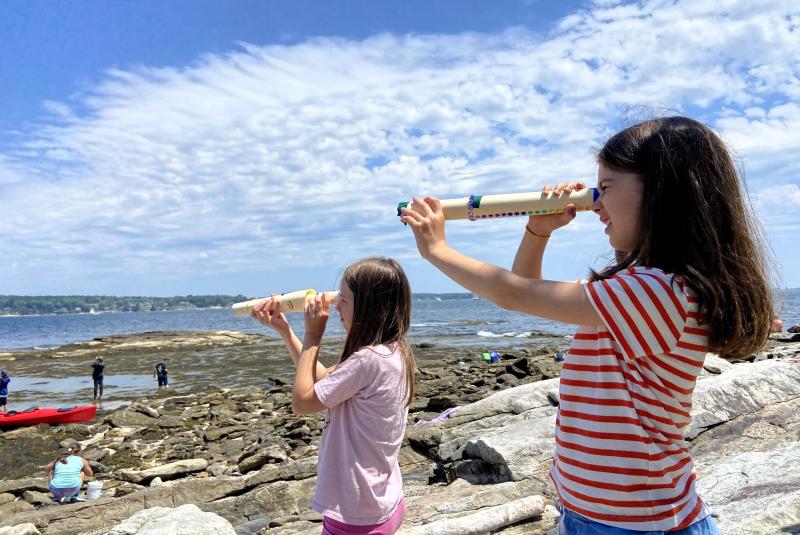 Kiera Whitt, left, and Olivia Tindal use handmade spyglasses to peer across the horizon at Burnt Island during camp this summer. Courtesy of Jennifer Lassen
Kiera Whitt, left, and Olivia Tindal use handmade spyglasses to peer across the horizon at Burnt Island during camp this summer. Courtesy of Jennifer Lassen
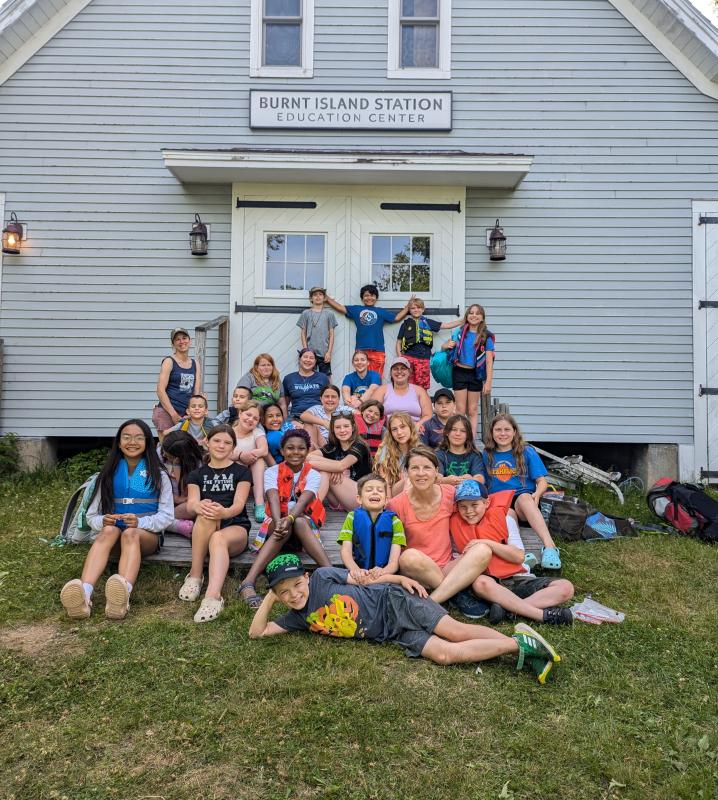 Campers at the Burnt Island education center. Courtesy of Jennifer Lassen
Campers at the Burnt Island education center. Courtesy of Jennifer Lassen
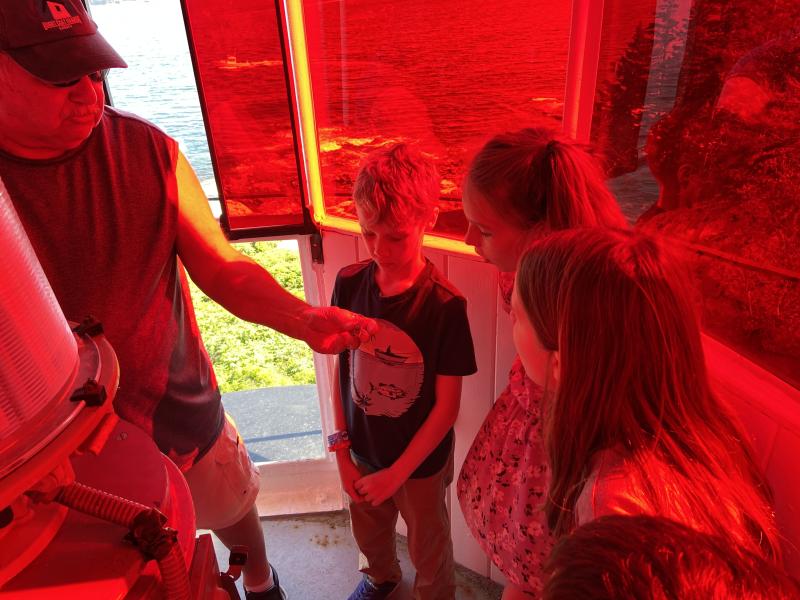 Steve McCullough, son of a former Burnt Island lighthouse keeper, teaches kids about the light during a tour of it. Courtesy of Jennifer Lassen
Steve McCullough, son of a former Burnt Island lighthouse keeper, teaches kids about the light during a tour of it. Courtesy of Jennifer Lassen
 Boothbay Region Elementary School student Jimmy Hourihan holds up a salty friend. Courtesy of Jennifer Lassen
Boothbay Region Elementary School student Jimmy Hourihan holds up a salty friend. Courtesy of Jennifer Lassen
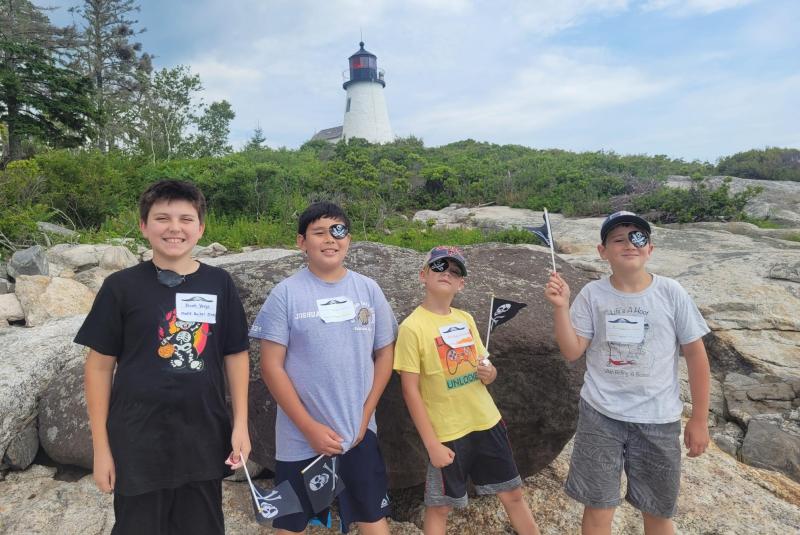 Edgecomb Eddy students with Burnt Island lighthouse in the background. From left to right, Jacob Verge, Joshua Stetson, Blake Cassidy and Harland Johnson. Courtesy of Jennifer Lassen
Edgecomb Eddy students with Burnt Island lighthouse in the background. From left to right, Jacob Verge, Joshua Stetson, Blake Cassidy and Harland Johnson. Courtesy of Jennifer Lassen
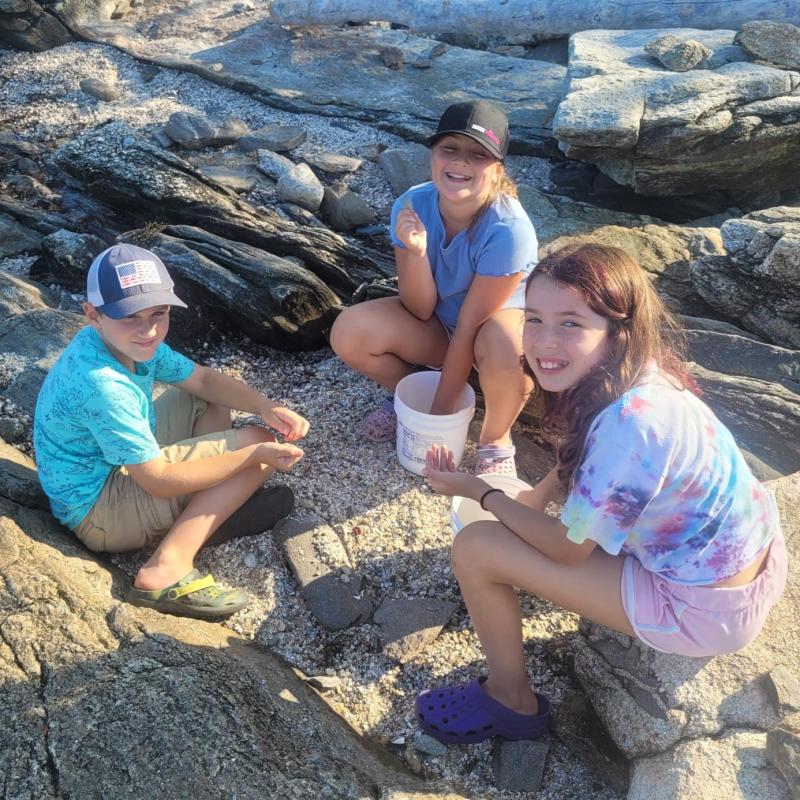 From left, Harland Johnson, Briar Johnson and Adeline Boucher on the shore. Courtesy of Jennifer Lassen
From left, Harland Johnson, Briar Johnson and Adeline Boucher on the shore. Courtesy of Jennifer Lassen
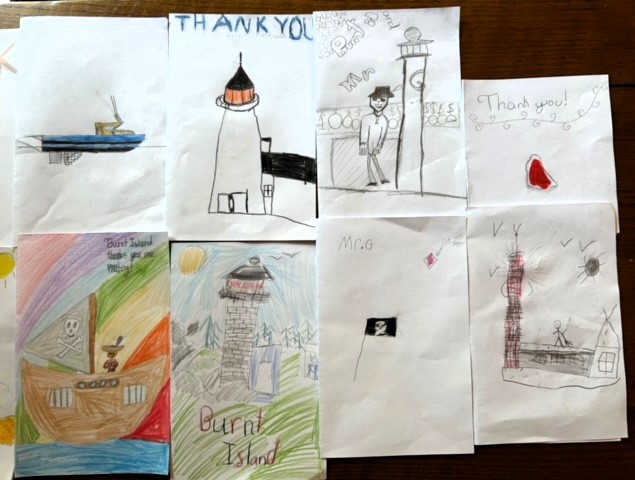 Handmade thank you cards. Courtesy of Jennifer Lassen
Handmade thank you cards. Courtesy of Jennifer Lassen
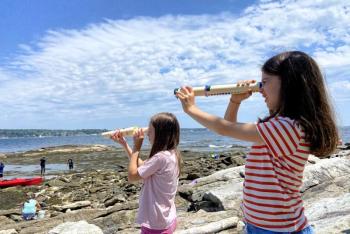 Kiera Whitt, left, and Olivia Tindal use handmade spyglasses to peer across the horizon at Burnt Island during camp this summer. Courtesy of Jennifer Lassen
Kiera Whitt, left, and Olivia Tindal use handmade spyglasses to peer across the horizon at Burnt Island during camp this summer. Courtesy of Jennifer Lassen
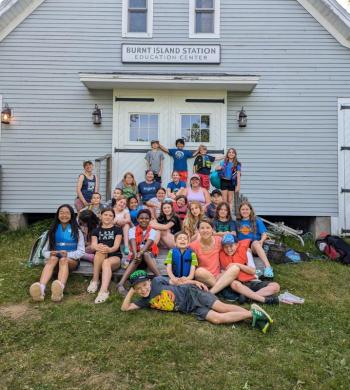 Campers at the Burnt Island education center. Courtesy of Jennifer Lassen
Campers at the Burnt Island education center. Courtesy of Jennifer Lassen
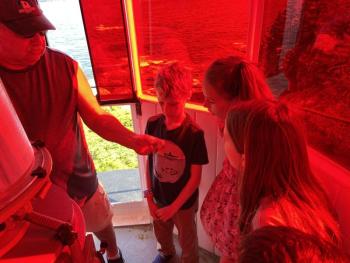 Steve McCullough, son of a former Burnt Island lighthouse keeper, teaches kids about the light during a tour of it. Courtesy of Jennifer Lassen
Steve McCullough, son of a former Burnt Island lighthouse keeper, teaches kids about the light during a tour of it. Courtesy of Jennifer Lassen
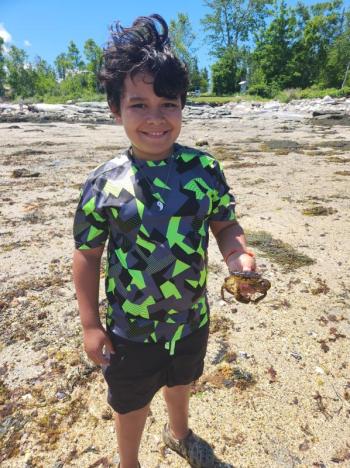 Boothbay Region Elementary School student Jimmy Hourihan holds up a salty friend. Courtesy of Jennifer Lassen
Boothbay Region Elementary School student Jimmy Hourihan holds up a salty friend. Courtesy of Jennifer Lassen
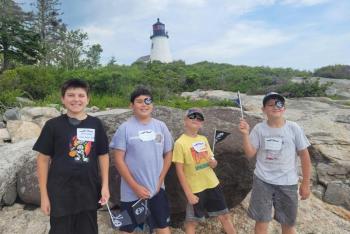 Edgecomb Eddy students with Burnt Island lighthouse in the background. From left to right, Jacob Verge, Joshua Stetson, Blake Cassidy and Harland Johnson. Courtesy of Jennifer Lassen
Edgecomb Eddy students with Burnt Island lighthouse in the background. From left to right, Jacob Verge, Joshua Stetson, Blake Cassidy and Harland Johnson. Courtesy of Jennifer Lassen
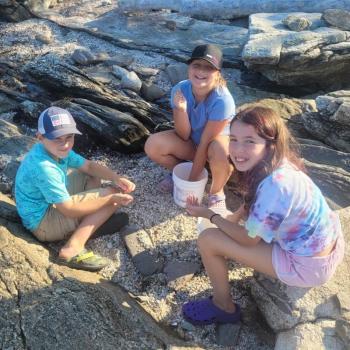 From left, Harland Johnson, Briar Johnson and Adeline Boucher on the shore. Courtesy of Jennifer Lassen
From left, Harland Johnson, Briar Johnson and Adeline Boucher on the shore. Courtesy of Jennifer Lassen
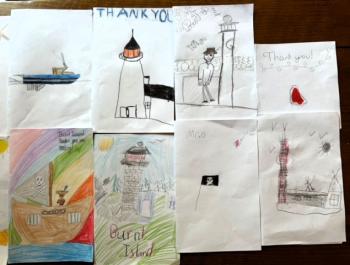 Handmade thank you cards. Courtesy of Jennifer Lassen
Handmade thank you cards. Courtesy of Jennifer Lassen
Imagine being a pirate stranded on a Maine island. Like any good seafarer, you need a telescoping spyglass to peer over the horizon. Alas, all you have are raw materials: In this case, paper, tape and lenses. That was a scenario for campers at Burnt Island this summer where their pirate-themed experience used experiential learning to help teach science, history and all the island has to offer.
“It's all exploratory for them and hands-on,” said Elaine Jones, who helps run the program. “It's using skills that they can bring back to the school because they're learning to be thinkers and be independent as well as they learn it in school.”
Jones said around 75 students participated in this summer’s camp; the slots filled up within 48 hours. Students, parents and teachers celebrated their experience Aug. 19 during a pizza party at Boothbay Railway Village Museum where they shared highlights. The program, in its third year, takes place in three separate sessions, eligible to students in Alternative Organizational Structure 98 going into fourth, fifth and sixth grades.
Campers participated in a wide range of activities over three days and one overnight stay at the island’s education center. Some, such as making spyglasses, compasses and pirate flags, were tailored to this year’s theme. Others, like nature walks, bioluminescence viewing, and tide pooling, are return favorites. Teacher Jennifer Lassen said educators typically focus on science education and ecology. “We can bring in some topics we have taught in the classroom that we can elaborate on out in the island,” she said.
Lassen, like other staff in the program, is a teacher at Boothbay Region Elementary School (BRES). She also enrolled two children at the camp. She said her family has been involved with Burnt Island for years, also helping to fundraise and maintain it. “The island is really important personally to me. Going out there was just a wonderful opportunity to be able to teach in a different way than in the classroom.”
Jones said the goal is for teachers like Lassen to have ownership over the program. Jones, who was longtime education director for the state, develops the program curriculum and trains teachers to run it. She later helped the state acquire the island in 1998 and turn it into an educational facility. Now retired, she runs a nonprofit, Lighthouse Education and Nautical Studies, and focuses on supporting teachers and the camp.
“It's a very magical place. If you haven't been there, you need to go. It's got every environment that you would want, every habitat,” she said, listing rocky shores, sandy gravel beaches, a mudflat, a meadow and a forest. "So, all environmental educational activities can happen in the outdoors. And experiential learning is the best there is.”
For example, during a tide pool exercise, children learn about animal characteristics, behaviors and adaptations. They see wildlife in its natural environment and learn how to carefully handle and return them.
However, it’s not all about science. Students also learn about the lighthouse and maritime history. As in years past, former lighthouse keeper Henry Sieg and a keeper’s son, Steve McCullough, shared their experiences. In line with the pirate theme, the program included history lessons about pirates in the Midcoast and, of course, pirate ghost stories.
“The kids really don't really realize they're learning as much as they are,” said Edgecomb Eddy School teacher Sara Currier. "It was a pirate camp, but it was really a lot of history is what we were teaching. History along with incorporating the compass hikes and the different things like that. They don't realize what we're doing. We're sneaking in history lessons ...”
Students talked about how much they enjoyed spending time with both new and old friends, and how much they fun they had during their island adventure.
“It's a beautiful island, and I love the views and the sunsets and everything like that. It's just really beautiful out there,” said Sophia Gatnar, a student volunteer going into eighth grade at BRES. “It's really fun with helping out the kids and seeing their faces with the new experiences ...”
Instilling a love for the island is part of a not-so-ulterior motive for Jones. From tending to gardens, making repairs to the educational center and taking care of storm damage on the property, the island needs stewards. She hopes the kids will someday fill that role.
“Learning about lighthouses is important. Also, as they learn about them, hoping that they fall in love with Burnt Island light, and they will become future stewards because it is their lighthouse. It belongs to the state. It belongs to this community. It belongs to them. And (it needs) to be taken care of.”


